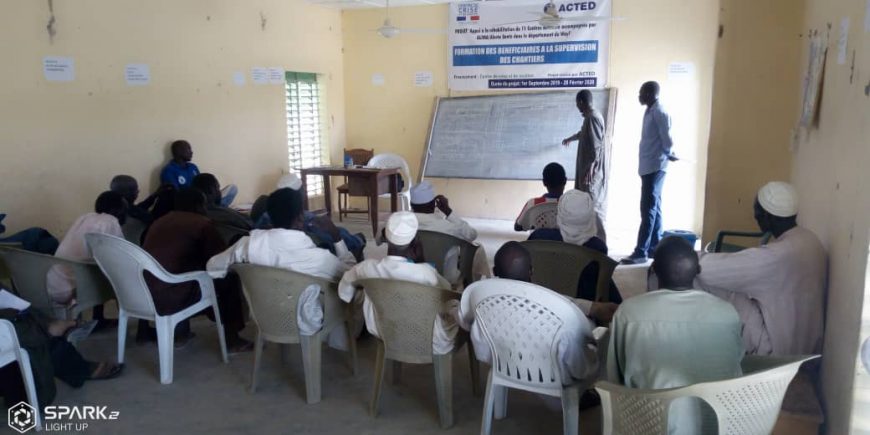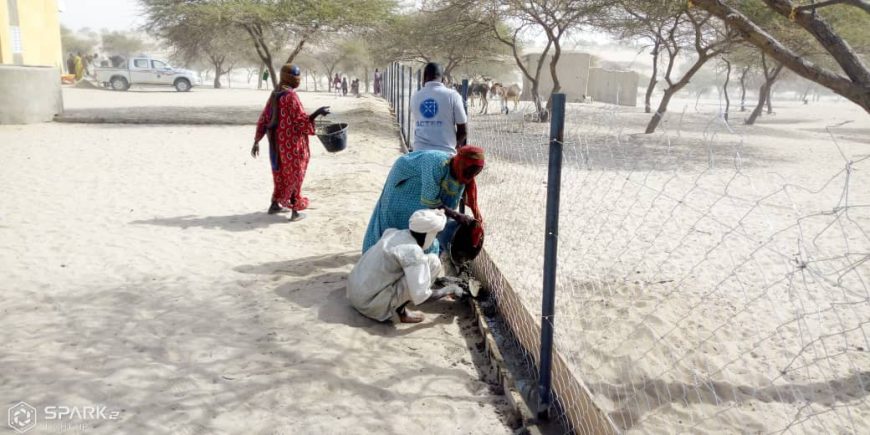In 11 villages in Chad's Lake Province, populations have better access to healthcare following the rehabilitation of their health centres.
The low level of development of the Lake Province prevents local communities from having access to functional health infrastructures, and in particular to health centres that can accommodate them in acceptable conditions. With the support of the Crisis and Support Centre (CDCS), ACTED has been able to rehabilitate 11 health centres in Wayi Department.
Before the rehabilitations, working conditions were very difficult for us (...). The work and material donations will change the working conditions and it is a favourable and lasting asset that allows us to take good care of our patients now and in the future.

Dysfunctional health structures
Nearly 2 million people in Chad are affected by various problems of access to health care. The economic challenges facing the country since 2016 and the fall in oil prices have limited the funds dedicated to improving health structures in the country.
The Lac Province, which is regularly exposed to security and climatic shocks that exacerbate the vulnerability of communities, is a telling example. With one doctor for every 53,714 inhabitants, access to healthcare is problematic and health centres often lack the human and material resources to be able to treat patients adequately.
Rehabilitating for treatment
After a rapid needs assessment in 11 health centres in Wayi Department, ACTED was able to start its rehabilitation programme. The needs were important: lack of waiting space for patients, absence of functional latrines and water points in some centres, lack of basic materials (chairs, tables, consultation beds) and equipment to clean the premises.
The centres were then provided with the necessary equipment to continue their activities. 119 people living in the villages were paid to take part in the work, and 19 of them took part in training in building trades. The objective is to place the communities at the heart of the activity, while enabling the beneficiaries to meet their needs during the project.

This training helped me to learn a lot of things I didn't know about the building trades. I will use the knowledge I gained during this project to continue working in this field. The money received through the rehabilitation activities has allowed me to provide for my family, food and health care.
Rehabilitated health centres for nearly 99,000 people
The support provided has helped to strengthen the capacity of health centres covering approximately 99,000 people. Despite persistent challenges, particularly in terms of access to medicines and the lack of qualified personnel, the work carried out by the populations of the villages concerned is the first step towards facilitating access to a basic public service. The cash support has also made it possible to meet the health and food needs of the families, in anticipation of the next hunger gap.
